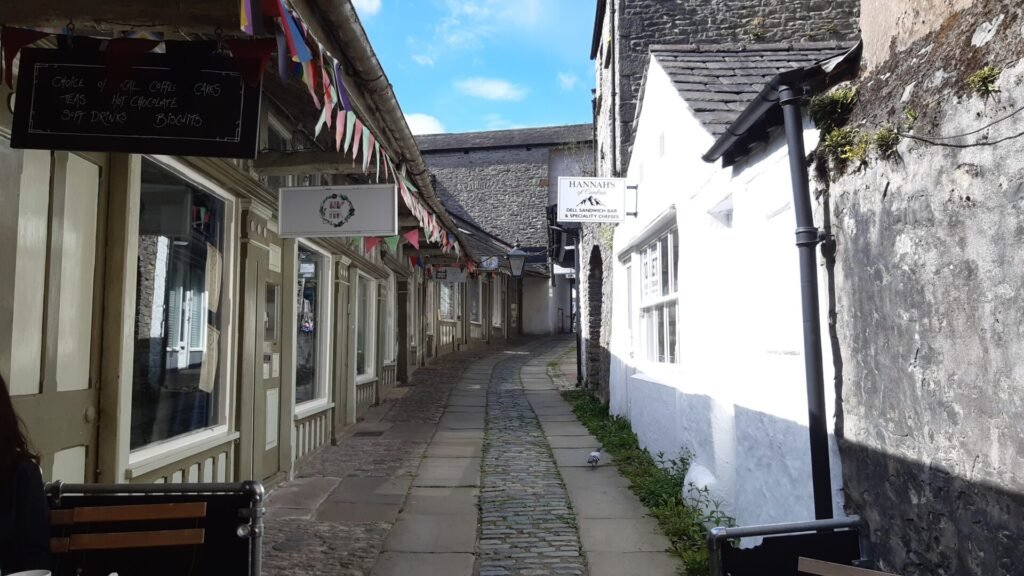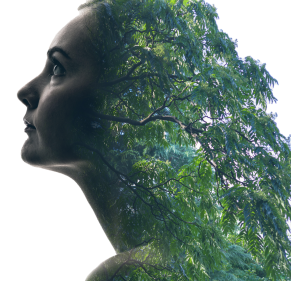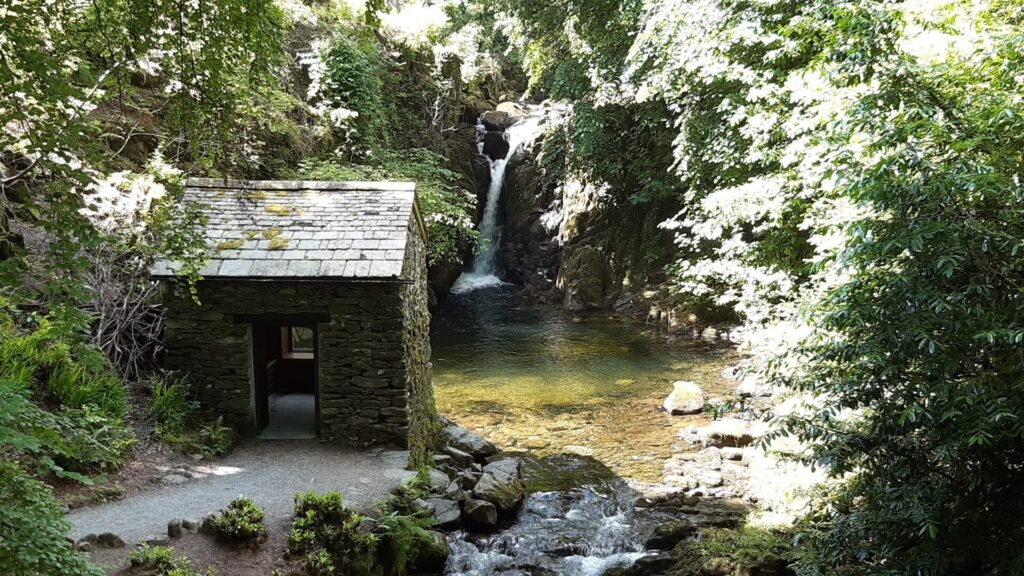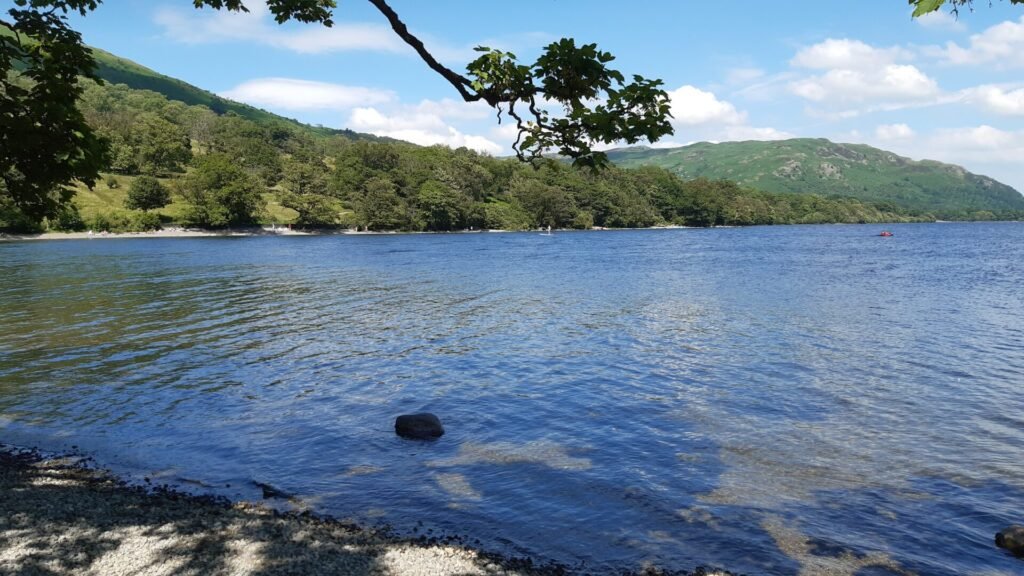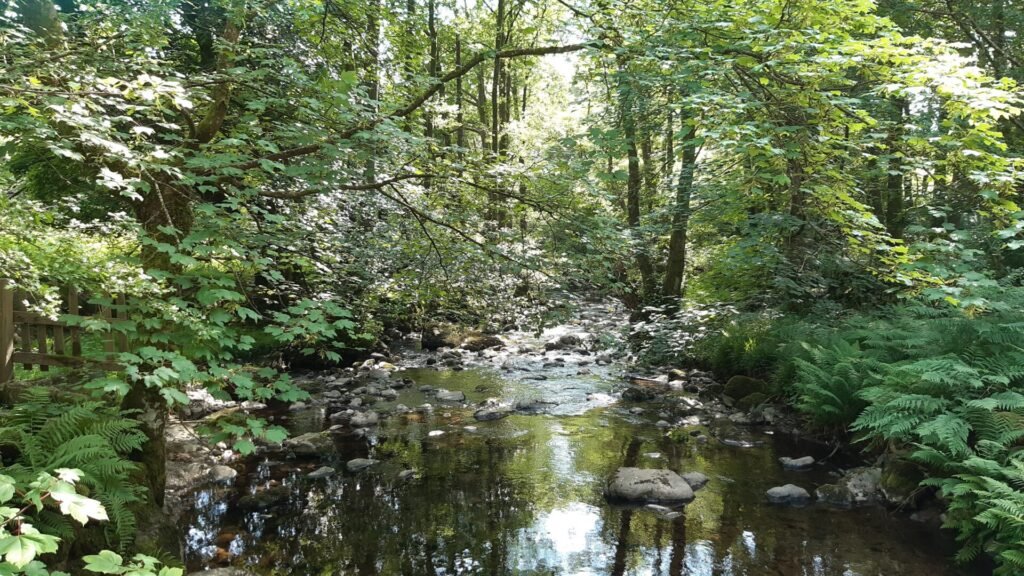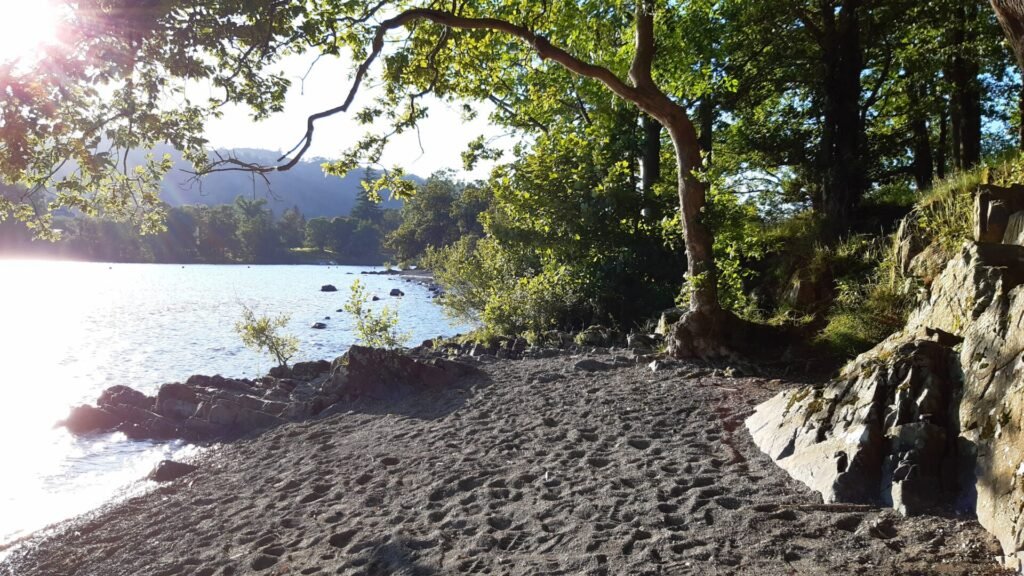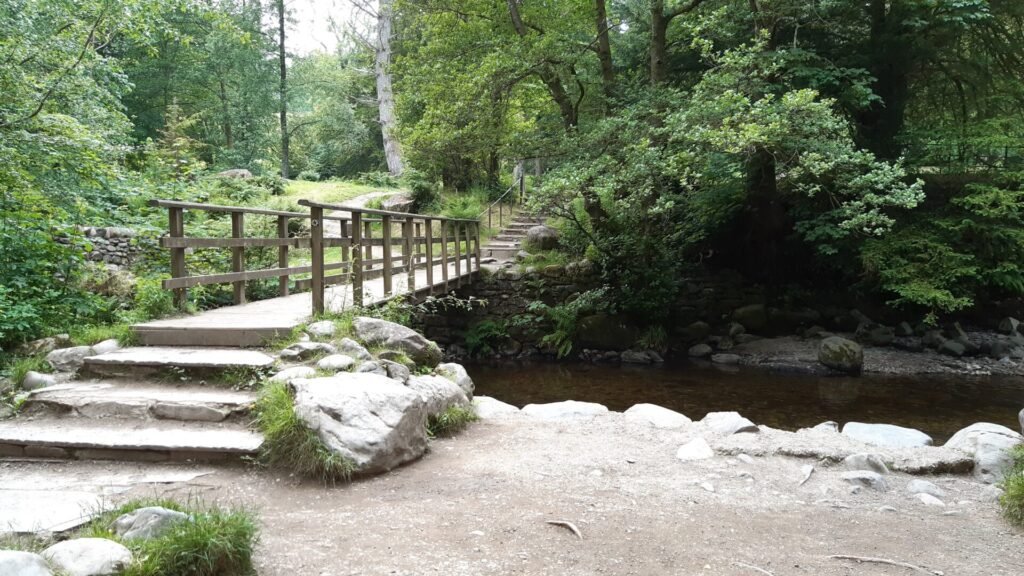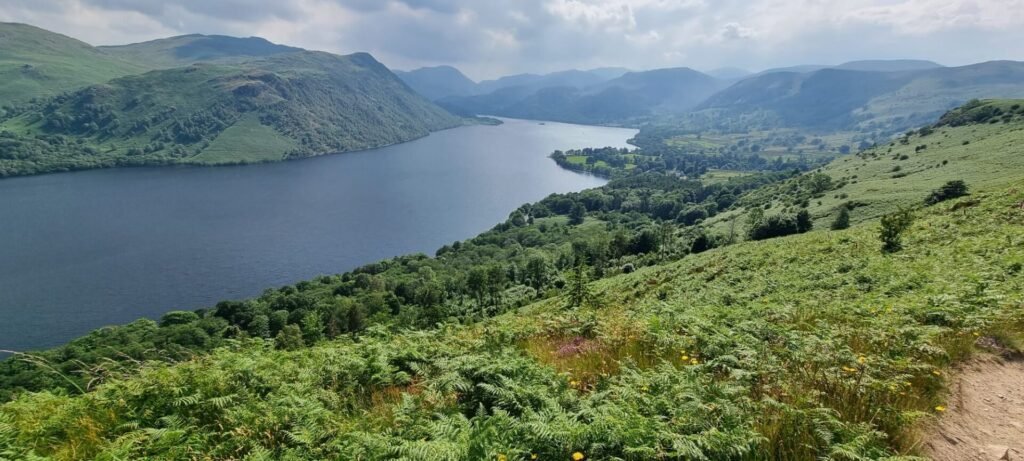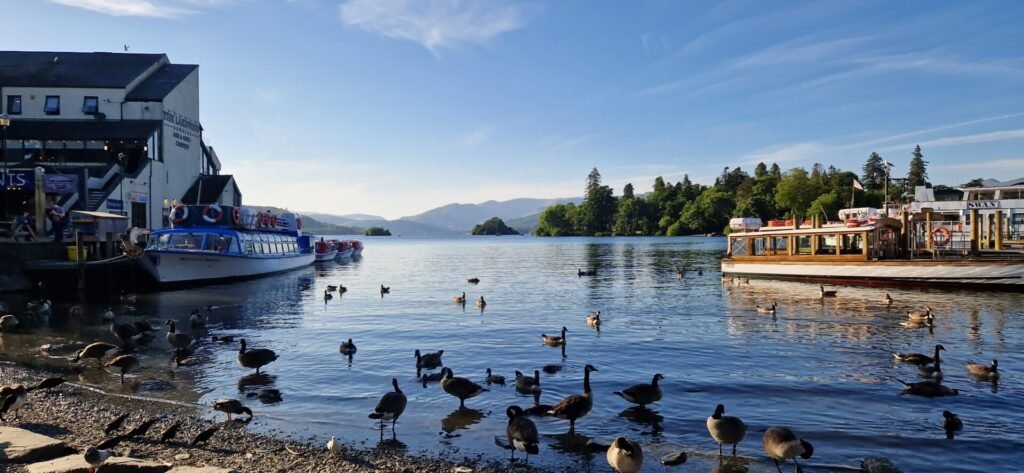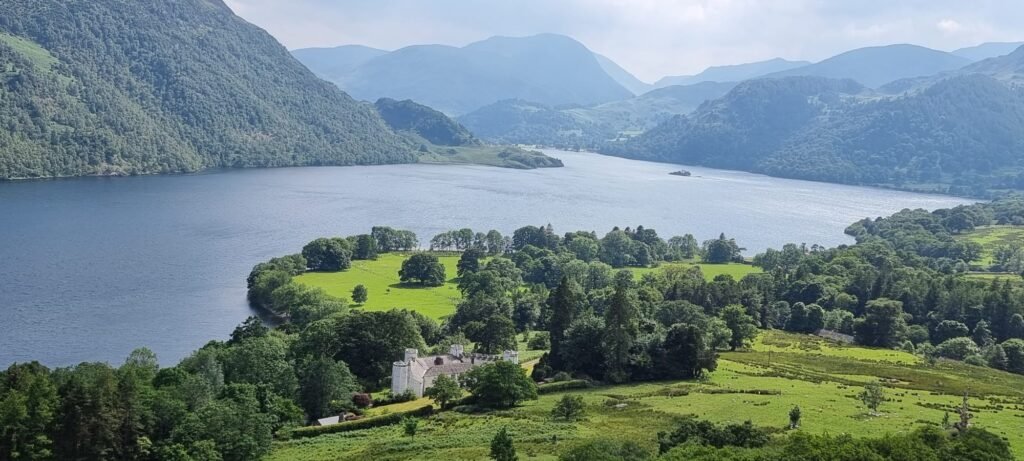Being in Nature (e.g. the beauty of the Lake District).
One of my favourite places in the world is the Lake District in Cumbria, NW England (full disclosure: it’s where I grew up). I love exploring the fells and dales there, the air is always so fresh and clean and the scenery is always uplifting, I feel connected to nature there like nowhere else. Also, being away from technology (like laptops and smartphones) can be resetting and refreshing.
The health benefits are many:-
- Walking on varied and angled terrain, from wet moss, to high grassland areas, to smooth short grass, to pebbles on the shoreline of the lakes, the workout on the body is immense. It includes flexibility, strength and stamina development across many muscle groups in the body, not just the legs. Also great for general cardiovascular health and deeper breathing; the oxygen is clean and levels high there, with no man-made toxic fumes to ruin it.
- It allows you to be close to all the different elements in nature: rock, sand, stone, grass, water (the waterfalls and streams there are incredible!), slate quarries, as well as climate changes – warm/hot in summer to snow in winter, and rain in between.
- Listening to the relaxing sounds of nature, bringing about alpha brainwave rhythms (akin to those achieved in deep meditation). The sound of birds in the Lake District, UK, is a symphony of nature – the dawn chorus is the melody of robins and blackbirds, the high-pitched warbling of wrens and the vibrant notes of the thrush. In the woodlands, the rhythmic drumming of woodpeckers resonates through the trees, and the occasional call of a tawny owl might be heard. By the lakes and rivers, you hear the calls of gulls and the soaring screeches of birds of prey, like kestrels and buzzards which flourish as protected species in the Lakes. Overall, the bird sounds in the Lake District create a rich and dynamic auditory experience, reflecting the area’s diverse habitats and seasonal changes.
- Walking in such uneven terrain requires you to be attuned and perfectly mindful, focusing just on the present moment, which naturally deepens and sustains mental relaxation. It also helps neutralise the electrical charge in our bodies.
- Walking past fellow travellers there is a close bond and everyone seems to say hello to you or ask how you are; creating a nice feeling of comradeship and oneness.
- The scenery reminds you that although the paths are mankind-created, the rest is as it has always been, yet none of it looks out of place or unsightly, everything is in its place. There are no straight lines in nature, they are only created by humans, with bridges and buildings. Dry-stone walling is the norm here – dry-stone walling is a traditional method of building walls without using mortar to bind the stones together. Instead, stones are carefully selected and placed so that they interlock and support each other through friction and gravity, quite masterfully. This technique has been used for centuries in rural landscapes, such as in the lakes’ towns and villages.
- The stunning landscapes, including lakes, mountains, woodland and forests, provide visual pleasure and inspiration, enriching the walking experience. Many famous poets once lived here, such as Wordsworth, Coleridge, Southey, de Quincey and Ruskin.
- Completing challenging walks and reaching scenic viewpoints can provide a sense of accomplishment and boost self-esteem. There are over 1,600 hikes and trails (walks) in the Lakes, some a couple of miles but most range between 5 – 20 miles.
- Walking in this unspoilt wilderness enables you to observe a diverse range of wildlife, from birds and mammals to plants and flowers, enhancing the experience of nature and the inner connectedness we each have to it. Grazing cows, sheep and goats abound. It is also farming country.
- The Lake District is rich in history and culture, with many trails passing by historical sites, literary landmarks, and picturesque villages, I’m always learning new things and discovering new places every time I go up there; with many quaint, rural villages with their local arts, crafts and traditions to enjoy.
Spending time in the natural beauty of the Lake District fosters a deeper connection to nature, and promotes greater environmental awareness and appreciation.
‘Learn about a pine tree from a pine tree,
And about a bamboo plant from a bamboo plant.’
– Zen Poet Bashō.
‘To a Zen poet, a thing of beauty
Or anything in nature, is the Absolute.’
– Takahashi Ikemoto.
‘It is with awe .. that I beheld
Fresh leaves, green leaves,
Bright in the sun.’
– Bashō
